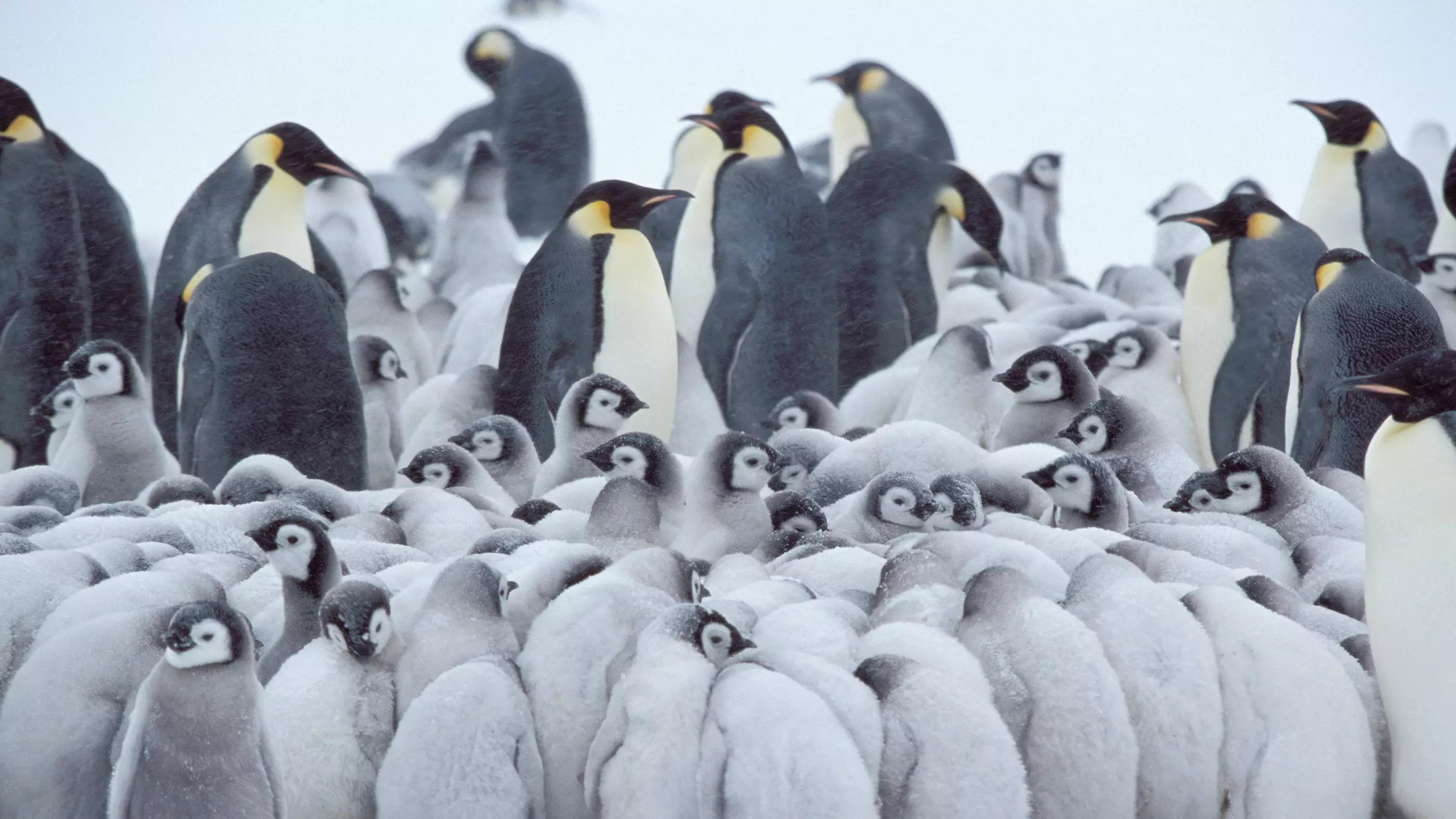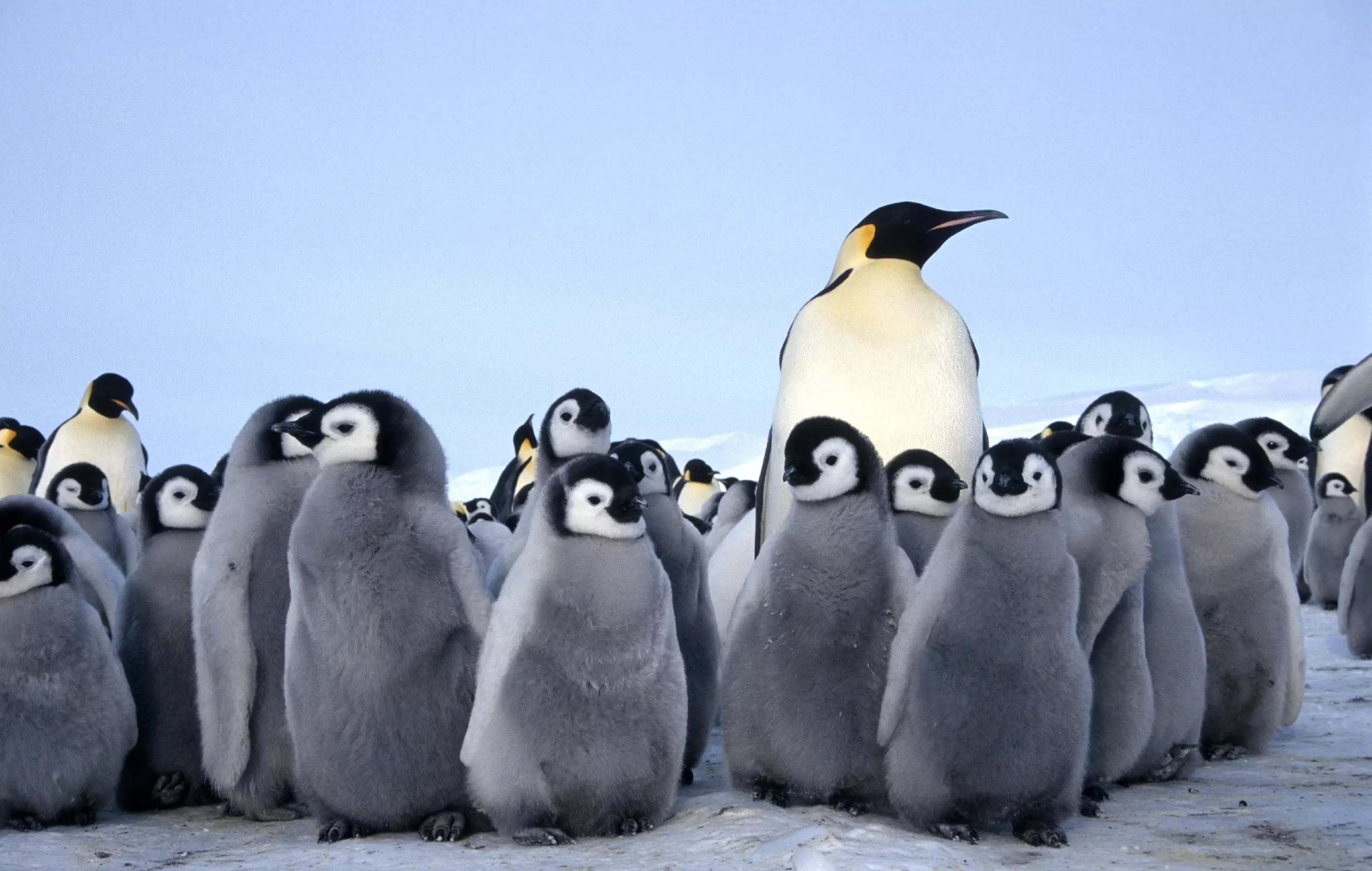
Ever-escalating changes to our planet have taken a lot of casualties, but one of the heart-breaking ones of all so far has to be the emperor penguins. While they haven't been completely made extinct, it looks like it might not be that long, as the second largest emperor penguin colony has almost completely vanished.
According to the BBC, thousands of emperor penguin chicks drowned when the sea-ice they were being raised on was completely destroyed in 2016. The colony has collapsed, and adult birds show no signs of attempting to re-up the population - which would likely be pointless, anyway, due to a giant iceberg. The population, which has sustained an average of 14,000-25,000 breeding pairs for decades, has essentially disappeared.
The reason the population is disappearing is because the sea-ice they have their chicks on must remain stable from April until December, when they fledge and can swim for themselves. If it breaks up too early, the young birds aren't able to swim to safety.
Advert
Dr Fretwell, who noticed the disappearance, told BBC News: "The sea-ice that's formed since 2016 hasn't been as strong. Storm events that occur in October and November will now blow it out early. So there's been some sort of regime change. Sea-ice that was previously stable and reliable is now just untenable."

Surprisingly, climate change might not be to blame - reportedly, "atmospheric and ocean observations in the vicinity of the Brunt reveal little in the way of change." however, this event illustrates the catastrophic impact global warming might have on this area and on penguins in particular.
Dr Phil Trathan, also from the British Antarctic Survey (BAS), told the BBC: "what's interesting for me is not that colonies move or that we can have major breeding failures - we know that. It's that we are talking here about the deep embayment of the Weddell Sea, which is potentially one of the climate change refugia for those cold-adapted species like emperor penguins."
Advert
Some of the penguins might have flocked to the Weddell Sea, but whether or not numbers will improve is unclear.
Featured Image Credit: PA images
